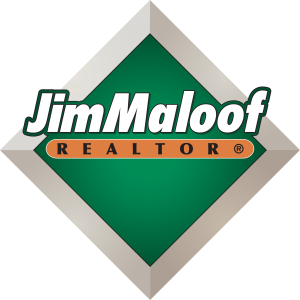The Home Buying Process: Step-by-Step Guide

- Determine Your Budget: Before you start looking at homes, it’s important to determine how much you can afford to spend. Consider factors such as your income, savings, monthly expenses, and any existing debt.
- Get Pre-Approved for a Mortgage: Meet with a mortgage lender to get pre-approved for a loan. This will give you a clear idea of how much you can borrow and show sellers that you’re a serious buyer.
- Find a Real Estate Agent: Hire a licensed real estate agent who you trust and is familiar with the Peoria area. They can help you find properties that meet your criteria, negotiate with sellers, and navigate the home buying process.
- Start House Hunting: Work with your real estate agent to search for homes that fit your budget and preferences. Attend open houses, schedule private showings, and explore different neighborhoods in Peoria.
- Make an Offer: Once you’ve found a home you love, your agent will help you prepare and submit an offer to the seller. This offer will include the price you’re willing to pay, any contingencies (such as a home inspection), and the proposed closing date.
- Negotiate: The seller may accept your offer, reject it, or counter with a different price or terms. Negotiate with the seller until you reach an agreement that works for both parties.
- Under Contract: Once your offer is accepted, you’ll enter into a contract with the seller. This contract will outline the terms of the sale and any conditions that need to be met before closing.
- Complete Inspections and Appraisal: Schedule a home inspection to identify any potential issues with the property. You’ll also need to arrange for a home appraisal to determine the fair market value of the home.
- Finalize Your Mortgage: Work with your lender to finalize your mortgage application and secure financing for the purchase.
- Closing: Attend the closing meeting, where you’ll sign all the necessary paperwork to transfer ownership of the home. You’ll also pay any closing costs and make a down payment on the property.
- Move In: Congratulations, you’re now a homeowner! Pack up your belongings and move into your new home in Peoria.
Remember, the home buying process can vary depending on individual circumstances and local market conditions. It’s important to work closely with your real estate agent and other professionals to ensure a smooth and successful transaction.
What Makes A Good Real-Estate Agent?

 This subject is incredibly subjective, as there are many qualities that contribute to being an excellent real estate agent. Given that each client has distinct needs and objectives, the Redington team adopts a nuanced approach to every transaction. Here are our insights on the qualities that define a great agent:
This subject is incredibly subjective, as there are many qualities that contribute to being an excellent real estate agent. Given that each client has distinct needs and objectives, the Redington team adopts a nuanced approach to every transaction. Here are our insights on the qualities that define a great agent:
- Communication Skills: Effective communication is key to understanding clients’ needs, negotiating deals, and keeping all parties informed throughout the process.
- Knowledge of the Market: A good agent stays informed about local market trends, property values, and neighborhood dynamics to provide accurate advice to clients.
- Negotiation Skills: Negotiation is a significant aspect of real estate transactions. A good agent can secure the best deal for their clients, whether buying or selling.
- Honesty and Integrity: Trust is crucial in real estate transactions. Clients rely on their agents to provide honest advice and act with integrity throughout the process.
- Attention to Detail: Real estate transactions involve a lot of paperwork and legalities. A good agent pays attention to detail to ensure all documents are accurate and transactions proceed smoothly.
- Problem-Solving Ability: Challenges can arise during real estate transactions, from financing issues to unexpected property defects. A good agent can navigate these challenges and find solutions quickly.
- Networking Skills: Building a network of contacts, including other agents, lenders, inspectors, and contractors, can help an agent provide valuable resources to their clients.
- Customized Marketing Timelines: Every home is different finding the right buyer for your home is not always as easy as we make it look. the more eyes on a property the better. Having a customized marketing plan WILL SELL YOUR HOUSE!
- Tech-Savvy: In today’s digital age, technology plays a significant role in real estate transactions. A good agent is comfortable using technology for marketing, communication, and research purposes.
- Patience and Persistence: Real estate transactions can be complex and time-consuming. A good agent remains patient and persistent, guiding clients through the process until the deal is closed.
- Client Focus/Empathy: Ultimately, a good agent prioritizes their clients’ needs and strives to achieve the best possible outcome for them, whether they’re buying, selling, or investing in real estate. An empathetic agent will understand the stresses of the home buying and selling process and will be there for you in times of concern!
A Tradition Unlike Any Other.

If you’re a golf enthusiast looking for premier courses in the Peoria, IL area, you’re in luck! Here’s a rundown of the top 10 golf courses that are open and ready to provide an exceptional golfing experience:
- Weaverridge Golf Club: Located in Peoria, Weaverridge Golf Club is renowned for its scenic beauty and challenging course layout. Golfers can enjoy panoramic views of rolling hills and lush greenery while navigating through strategically placed bunkers and water hazards. With its championship-caliber design and top-notch amenities, Weaverridge Golf Club offers an exceptional golfing experience for players of all skill levels.
- Arrowhead Country Club: Situated in the heart of Central Illinois, Arrowhead Country Club boasts a prestigious 18-hole championship course designed by renowned architect Robert Trent Jones Sr. Golfers can expect a challenging yet rewarding round as they navigate through tree-lined fairways, strategically placed bunkers, and pristine greens. With its scenic beauty and top-notch facilities, Arrowhead Country Club offers a premier golfing experience for members and guests alike.
- Peoria Country Club: Established in 1897, Peoria Country Club holds a rich history and is known for its classic 18-hole golf course. Set amidst picturesque landscapes, golfers can enjoy tree-lined fairways, challenging bunkers, and beautifully manicured greens. The club’s timeless charm and dedication to providing an exceptional golfing experience make it a favorite among golf enthusiasts in the Peoria area.
- Quail Meadows Golf Course: Nestled in a serene setting, Quail Meadows Golf Course offers golfers a picturesque 18-hole layout surrounded by rolling hills and tranquil water features. The course’s well-maintained fairways and greens, along with its strategic bunkering, provide an enjoyable yet challenging round for players of all skill levels. With its scenic beauty and peaceful ambiance, Quail Meadows is a hidden gem for golf enthusiasts seeking a memorable golfing experience.
- Mount Hawley Golf Course: Located in Peoria, IL, Mount Hawley Golf Course is renowned for its challenging yet scenic 18-hole layout. Golfers can enjoy tree-lined fairways, strategically placed bunkers, and beautiful water features throughout the course. With its well-maintained greens and a variety of tee options, Mount Hawley provides an enjoyable and rewarding golfing experience for players of all skill levels.
- Coyote Creek Golf Club: Tucked away in Bartonville, Coyote Creek Golf Club offers a unique links-style course with rolling terrain, strategic bunkers, and picturesque water features. Golfers of all skill levels appreciate the challenging layout and natural beauty of this hidden gem in the Peoria area.
-
Kellogg Golf Course: Nestled in Forest Park, Kellogg Golf Course offers a picturesque setting with stunning views of the Illinois River Valley. This public course provides golfers with a unique and affordable golfing experience, featuring well-maintained fairways, challenging holes, and a friendly atmosphere. Whether you’re a beginner or a seasoned player, Kellogg Golf Course is a delightful place to tee off and enjoy a round of golf.
- Pine Lakes Golf Club: Situated in Washington, just outside of Peoria, Pine Lakes Golf Club features a beautiful 18-hole course surrounded by serene lakes and lush landscapes. With challenging holes and a peaceful setting, it’s a popular destination for golfers looking for a scenic and enjoyable round.
-
- Madison Golf Course: Known for its friendly atmosphere and well-designed holes, Madison Golf Course offers a welcoming environment for golfers of all levels. Situated in the Peoria area, this course provides a balance of challenges and enjoyment, making it a favorite among local golf enthusiasts.
Whether you’re seeking a championship-level challenge or a leisurely round surrounded by natural beauty, Peoria’s top 10 golf courses offer something for every golfer. if you’re interested in exploring real estate opportunities on these golf courses or would like to schedule showings, don’t hesitate to contact the Redington Team. We’re here to assist you in finding your dream home. Grab your clubs and tee off at these fantastic courses for an unforgettable golfing adventure in Peoria!
Understanding the NAR Lawsuit: What You Need to Know


In recent times, the real estate industry has been abuzz with discussions about a significant legal battle involving the National Association of Realtors (NAR). This lawsuit has raised important questions about real estate commission structures and practices, sparking debates and potential changes in the industry. In this blog post, we delve into the details of the NAR lawsuit, its background, key issues, potential impact, and what it means for real estate professionals and consumers alike.
Background of the Lawsuit: The NAR lawsuit stems from allegations of anti-competitive behavior and price-fixing within the real estate industry. It accuses NAR and its members of engaging in practices that limit competition and transparency in real estate commissions. These allegations have drawn attention to the way real estate transactions are conducted and the impact on consumers and industry professionals.
Key Issues Raised in the Lawsuit: One of the main issues raised in the lawsuit is the lack of transparency in real estate commission structures. Critics argue that these structures often lead to inflated costs for consumers and limit their ability to negotiate fair deals. Additionally, the lawsuit questions the fairness of certain industry practices and the potential impact on market competition.
Impact on Real Estate Professionals: The outcome of the NAR lawsuit could have significant implications for real estate professionals, including agents, brokers, and other industry stakeholders. There may be changes in commission structures, pricing models, and regulatory requirements that could reshape how real estate transactions are conducted. It is essential for professionals to stay informed and adapt to potential shifts in the industry landscape.
Consumer Benefits and Considerations: While the lawsuit raises concerns about industry practices, it also presents opportunities for consumer benefits. Increased transparency in pricing and more competitive commission rates could empower consumers to make informed decisions and negotiate better deals. However, consumers should also be aware of any changes or challenges that may arise during this period.
NAR’s Response and Actions Taken: In response to the lawsuit, NAR has taken steps to address the allegations and defend its position. This includes initiatives to enhance transparency, educate members about fair practices, and collaborate with regulators to ensure compliance with legal standards. The ongoing developments in the lawsuit highlight the importance of industry accountability and consumer protection.
Industry Outlook and Future Implications: Looking ahead, the outcome of the NAR lawsuit could shape the future of the real estate industry. It may lead to reforms in commission structures, increased competition, and a focus on providing value and transparency to consumers. Real estate professionals and consumers alike should monitor developments and adapt to changes that may emerge from the legal proceedings.
Conclusion: The NAR lawsuit underscores the importance of addressing concerns about real estate commission practices and promoting fair competition in the industry. It is a reminder of the evolving nature of real estate transactions and the need for transparency, integrity, and consumer-centric approaches. As the legal process unfolds, staying informed and proactive will be key for navigating the changing landscape of the real estate market.
Remember to consult legal and industry experts for specific advice and updates related to the NAR lawsuit. Stay tuned for further developments and insights into this significant legal matter impacting the real estate industry.
Get the most for your money by choosing the right realtor!


When interviewing a realtor, it’s essential to ask questions to ensure you find the right person to represent you in buying or selling a property. Here are some questions you may want to consider asking:
- How long have you been working as a real estate agent, and what is your experience in the local market?
- What types of properties do you typically work with (e.g., residential, commercial, luxury), and do you have experience with transactions similar to mine?
- Can you provide references or client testimonials from past transactions?
- What is your approach to communication, and how frequently can I expect updates throughout the buying/selling process?
- How do you determine the value of a property, and what strategies will you use to help me achieve my goals (e.g., pricing strategy for sellers, negotiation tactics for buyers)?
- How will you market my property if I’m selling, or how will you help me find properties if I’m buying?
- What sets you apart from other real estate agents, and why should I choose you to represent me?
- Are you a member of any professional organizations or have any additional certifications or specializations?
- How do you handle potential conflicts of interest, and how do you prioritize my needs and interests throughout the transaction?
- What is your commission structure, and what services are included in your fee?
- Can you walk me through the buying/selling process and explain any potential challenges or issues I may encounter?
- How do you stay current with market trends and changes in real estate regulations?
- Can you provide insight into the current local market conditions and trends that may impact my transaction?
- Are you familiar with the neighborhoods or areas where I’m interested in buying/selling, and can you provide information about schools, amenities, and other local factors?
- How do you handle negotiations, and what is your approach to resolving conflicts or issues that may arise during the transaction?
These questions can help you assess a realtor’s expertise, professionalism, and suitability for your specific needs. Be sure to listen carefully to their responses and consider how well their approach aligns with your preferences and expectations.
Avoid These Common Renovation Pitfalls: Things That Won’t Add Value to Your Home.

Maximize Your Home’s Value: Top 5 Home Improvements Before Listing


Are you considering putting your home on the market? As a seasoned realtor with a background in home construction, I understand the importance of making strategic improvements to maximize your home’s value and appeal to potential buyers. Whether your goal is to sell quickly or fetch top dollar, investing in the right upgrades can make all the difference. Here are the top five home improvements to prioritize before listing your property for sale:
1. **Curb Appeal Enhancements:** First impressions matter, and the exterior of your home sets the tone for what buyers can expect inside. Boost your home’s curb appeal by freshening up the landscaping, painting the front door, and replacing worn-out hardware. Consider power washing the exterior, repairing any damaged siding or shingles, and adding outdoor lighting to highlight architectural features.
2. **Kitchen Renovation:** The kitchen is often considered the heart of the home and a major selling point for potential buyers. Invest in modernizing your kitchen by updating countertops, cabinets, and appliances. If a full renovation isn’t feasible, even small changes like replacing outdated hardware or installing a stylish backsplash can make a big impact.
3. **Bathroom Upgrades:** Similar to the kitchen, bathrooms can significantly influence a buyer’s decision. Focus on making your bathrooms feel clean, modern, and spa-like. Replace old fixtures, update the lighting, and re-caulk or re-grout as needed. A fresh coat of paint and new towels can also go a long way in revitalizing the space.
4. **Energy-Efficient Improvements:** In today’s environmentally conscious market, energy-efficient features are highly desirable among homebuyers. Consider upgrading to energy-efficient windows, installing a programmable thermostat, or adding insulation to improve energy efficiency. Not only will these upgrades appeal to eco-conscious buyers, but they can also lead to long-term cost savings on utility bills.
5. **Declutter and Depersonalize:** Finally, before listing your home, take the time to declutter and depersonalize each room. Remove excess furniture, personal items, and clutter to create a clean, spacious environment that allows potential buyers to envision themselves living in the space. Consider staging key rooms to showcase the home’s potential and help buyers envision the possibilities.
In addition to these top five home improvements, it’s essential to work with a knowledgeable real estate agent who can provide personalized guidance based on market trends and buyer preferences in your area. If you’re thinking of selling your home, now is the time to start planning your strategy. Contact me today for a consultation, and let’s work together to maximize the value of your home and achieve your selling goals.
Remember, the right improvements can make your home stand out in a competitive market and attract motivated buyers. Don’t wait until it’s time to list your home – start making strategic upgrades today to ensure a successful sale tomorrow!

 Facebook
Facebook
 X
X
 Pinterest
Pinterest
 Copy Link
Copy Link










